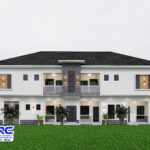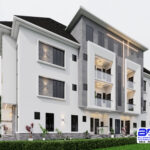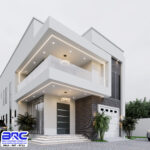Building a home is a major milestone for anyone, especially in a country like Nigeria,
Table of Contents
Togglewhere owning property is a huge aspiration.
Whether you’re thinking about building for your family or as an investment,
the process can feel overwhelming.
But don’t worry, we’re here to break it down for you in simple terms,
addressing the most common questions about building a home in Nigeria.
#1. How Do I Start Building a House in Nigeria?
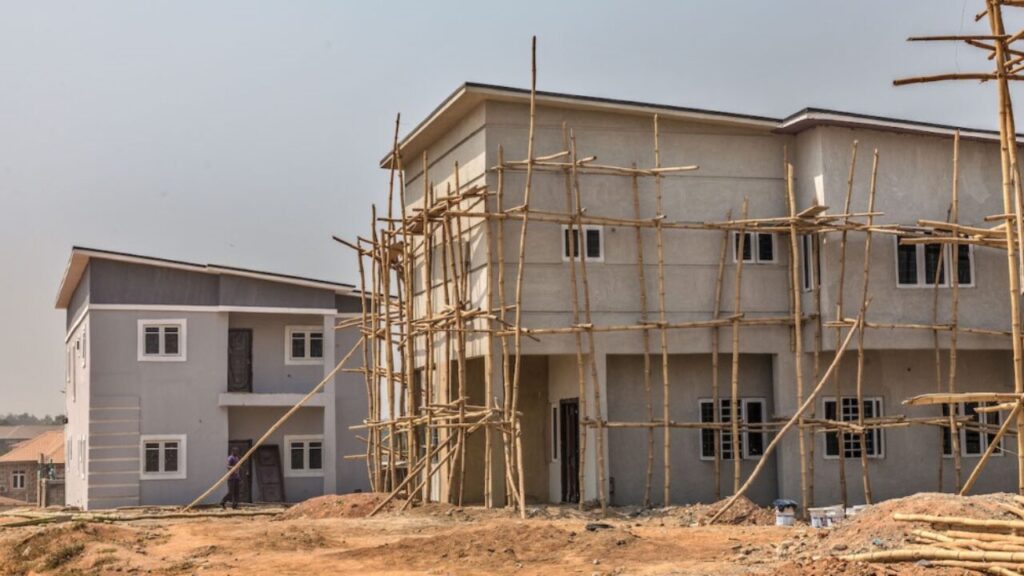
The first step in building a house in Nigeria is deciding on what kind of house you want to build.
Do you want a bungalow, a duplex, or a multi-story building?
Your choice of structure will guide the rest of your decisions – from land size to construction materials.
Once you have a clear idea of what you want, the next step is securing land.
This can either be through purchasing from a developer, a family member,
or buying land directly from an individual.
It’s crucial, though, to ensure the land is legally registered and free from disputes.
After this, you’ll need to obtain a building permit from the local government or urban development authority,
which is required to ensure your project meets all regulations.
To kick off the actual building, hiring the right professionals like an architect and engineers is key.
They’ll help you design the house and obtain necessary approvals before the building begins.
Read – I Want To Build a House on My Land Where Do I Start
Also read – How much does a building plan cost in Nigeria?
#2. How Much Does It Cost to Build a House in Nigeria?
The cost of building a house in Nigeria varies based on a number of factors, including location,
the type of house, the materials you choose, and the labor costs.
On average, building a 3-bedroom bungalow can cost anywhere from ₦25 million to ₦40 million.
However, this can be much higher if you’re in major cities like Lagos or Abuja,
where land and material costs are inflated.
The price can also change depending on your material preferences.
Using high-quality finishes like granite or imported tiles can push the price up,
while sticking to more local materials can save you some money.
It’s essential to have a clear budget from the start and to work closely
with your architect to make sure you stay within your means.
Read further – Estimate Cost of Building a House in Nigeria
#3. What Are the Challenges of Building a House in Nigeria?
Building in Nigeria doesn’t come without its hurdles.
One major challenge is land acquisition.
Sometimes, land ownership can be unclear, and there may be disputes,
making it necessary to do thorough checks before purchasing.
Additionally, land costs in major urban centers can be sky-high.
Another challenge is the rising costs of building materials.
Due to inflation, prices of materials like cement, steel, and even labor can fluctuate,
and that might stretch your budget. Infrastructure issues like unreliable access to water, electricity,
or good road networks can also cause delays and added costs.
On top of that, navigating the bureaucracy of obtaining the right permits
and approvals can sometimes be tedious and time-consuming.
If you’re not familiar with the processes, it’s easy to get bogged down in red tape.
Related – Top 10 Things to Consider Before Building a House in Nigeria
#4. Do I Need a Permit to Build a House in Nigeria?
Yes, building a house in Nigeria requires a building permit, and it’s not just a formality.
A permit ensures your building is legally authorized and complies with safety and zoning regulations.
Without it, you could face fines or even have your structure demolished.
To get a building permit, you’ll need to submit architectural and structural plans for approval,
which means you’ll need a registered architect.
Additionally, you must provide proof of land ownership and pay the permit fees.
Each local government has its own process, so it’s important
to be familiar with the requirements of the area where you’re building.
Read – How do I Obtain Building Permits in Nigeria?
#5. How Do I Choose the Right Architect and Contractor?
Choosing the right architect and contractor is crucial to your project’s success.
The right professionals will make the difference between a smooth,
stress-free build and a never-ending headache. Here are a few tips:
1. Do Your Research: Look for professionals with a solid reputation. You can check
reviews, ask for references, or visit past projects if possible.
2. Credentials Matter: Ensure that your architect and contractor are properly licensed and
registered with the relevant professional bodies, such as the Nigerian Institute of
Architects (NIA) or the Nigerian Society of Engineers (NSE).
3. Compare Quotes: Don’t settle for the first offer you get. Compare quotes from different
professionals to ensure you’re getting value for your money.
4. Discuss the Budget and Timeline: Be upfront about your budget and timeline. This
helps your architect and contractor set realistic expectations.
How do I find reliable building contractors in Nigeria?
#6. What Are the Legal Requirements for Building a House in Nigeria?
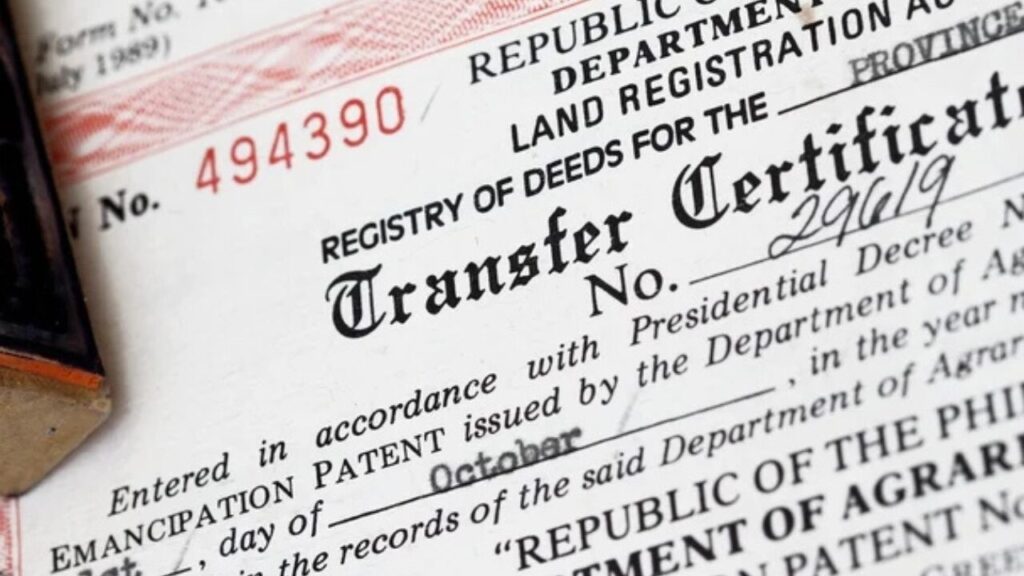
Before you begin building, it’s important to make sure everything is legally in order.
This includes securing proper land documents like a
Certificate of Occupancy (C of O) or a Land Title Certificate.
You’ll also need to ensure your building design complies with local zoning laws,
which regulate the type of buildings that can be erected in specific areas.
Additionally, you will have to pay property taxes and other levies once your building is complete.
Don’t overlook these, as they are important for keeping your
property in good standing with local authorities.
#7. How Long Does It Take to Build a House in Nigeria?
Building a home in Nigeria doesn’t happen overnight.
Depending on the complexity of your design, construction can take anywhere from 8 months to 24 months,
or even longer in some cases.
The timeline can be affected by things like weather conditions,
the availability of materials, and labor availability.
The building process is broken down into stages, starting with land preparation and foundation work,
moving through to the superstructure (walls, roofing, floors),
and finishing with the final touches (painting, tiling, plumbing, electrical work).
Each stage has its own challenges, so be prepared for delays along the way.
Related – How many months does it take to build a house in Nigeria?
#8. How Do I Finance the Construction of My House?
Financing your home construction in Nigeria can be tricky,
especially if you don’t have a large lump sum of money upfront.
Some common ways to finance construction include:
1. Personal Savings: Many people choose to build their homes gradually using savings.
This avoids the need for loans or mortgages but requires patience and discipline.
2. Bank Loans: Some banks offer loans for construction purposes, but these loans usually
come with high-interest rates and strict repayment terms. It’s essential to understand the
terms before committing.
3. Mortgages: Another option is applying for a mortgage. However, this requires you to
meet certain criteria, such as a stable income and good credit history.
4. Family and Friends: Some people tap into their networks to raise funds for their
construction. This might mean receiving loans or gifts from relatives or close friends.
Related – 7 essential financial steps to building a house in Nigeria
#9. What Are the Key Stages in Building a House?
Building a house involves several stages, each of which is crucial to completing the project
successfully:
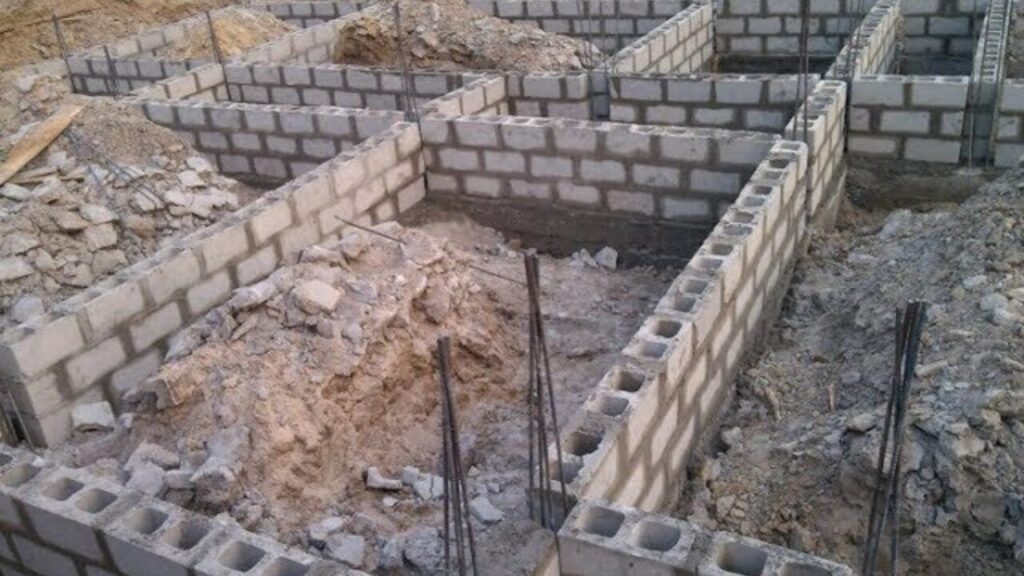
- Planning and Design: This is where you and your architect work together to create a
blueprint for your home. You’ll consider the size, layout, and materials during this stage. - Land Preparation: Once the design is finalized, the land is cleared, leveled, and
prepared for the foundation. - Foundation Work: The foundation is essential for supporting the entire structure, and it
must be done correctly to avoid future structural issues. - Superstructure: This is the phase where the walls, roof, and floors are built. It’s often
the longest stage, as it involves a lot of manual labor. - Finishing: Once the structure is complete, the finishing touches are added, including
painting, tiling, electrical, and plumbing work.
Read more – Stages of Building a House in Nigeria – Step by Step
#10. Can I Build a House on Inherited Land in Nigeria?
Yes, you can build on inherited land in Nigeria.
However, you must ensure that the land is legally transferred to your name,
with all necessary documentation in place.
In some cases, you might also need to resolve any family disputes regarding
ownership of the land before you proceed with construction.
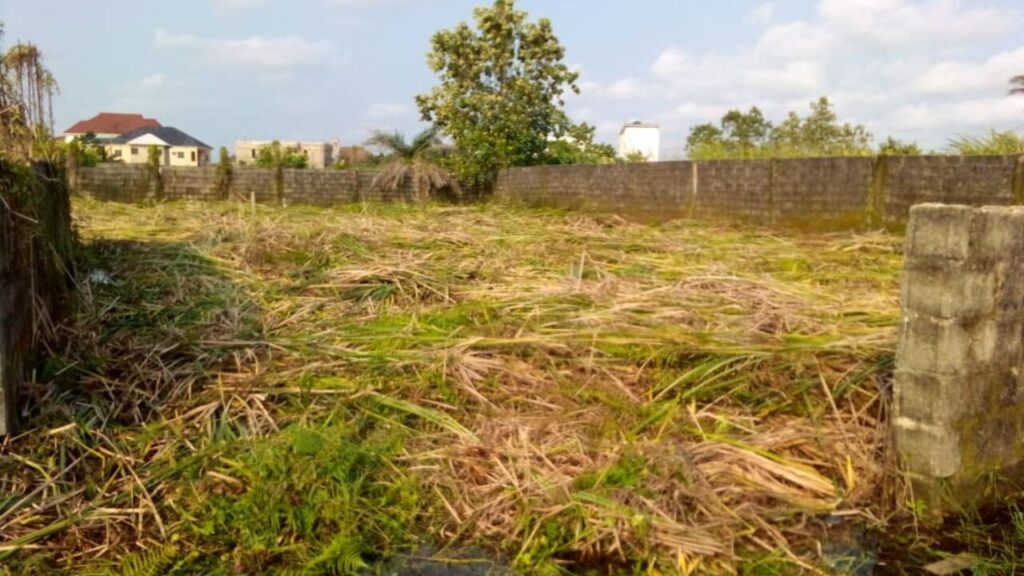
#11. How Do I Deal with Land Disputes in Nigeria?
Land disputes are a common problem in Nigeria,
but they can be avoided or resolved with proper documentation and due diligence.
Here are a few tips:
1. Conduct Thorough Checks: Make sure the land you want to buy is free of disputes.
Check with the Land Registry or Ministry of Lands to verify ownership.
2. Legal Support: If a dispute arises, it’s important to involve a lawyer who can help you
navigate the legal process.
3. Get Everything in Writing: Ensure all agreements and transactions are documented and
legally signed to avoid future conflicts.
We hope these answers to frequently asked questions help guide you on your journey to building
your home.
Stay patient, stay informed, and take it one step at a time. Your dream home is within
reach!


